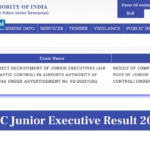The Rajasthan Public Service Commission (RPSC) is one of the most important recruitment bodies in the state of Rajasthan. It plays a crucial role in selecting candidates for various civil services, administrative positions, and other government jobs. Every year, thousands of aspirants prepare for RPSC examinations, aiming to secure a stable and prestigious government career.
In this comprehensive blog, we will explore the history, functions, recruitment process, examinations, eligibility criteria, preparation strategies, challenges, and the significance of RPSC in shaping Rajasthan’s governance.
Introduction to RPSC
The Rajasthan Public Service Commission was established in 1949, soon after the formation of the state of Rajasthan. The commission was constituted under Article 315 of the Indian Constitution, which mandates the establishment of a Public Service Commission in every state.
Since then, has been conducting competitive examinations and interviews to recruit candidates into various state government departments. Today, it is one of the most sought-after commissions for job aspirants in North India.
Historical Background
Before Rajasthan was formed, different princely states had their own separate recruitment boards. When these states were integrated into Rajasthan, there was a need for a centralized body to conduct examinations and recommend candidates.
- In 1923, the Lee Commission had recommended setting up a Public Service Commission for provinces in India.
- Following this recommendation, the Rajasthan Public Service Commission was officially established in 1949.
- The headquarters is located in Ajmer, Rajasthan.
Functions of RPSC
The primary responsibility is to ensure a fair and transparent recruitment process for state services. Its major functions include:
- Conducting Examinations – The commission organizes written exams, interviews, and practical tests for recruitment.
- Recruitment to State Services – It selects candidates for Rajasthan Administrative Services (RAS), Rajasthan Police Services (RPS), and other allied services.
- Advisory Role – advises the state government on issues related to recruitment, promotions, disciplinary actions, and service rules.
- Screening Candidates – Through various stages of exams, it shortlists suitable candidates.
- Departmental Promotions – It conducts exams for promotions within government departments.
Recruitment Process
RPSC follows a structured recruitment process to ensure the best candidates are selected for different posts. The general process includes:
- Notification Release – issues official recruitment notifications detailing vacancies, eligibility, and exam structure.
- Application Submission – Eligible candidates apply online through the RPSC portal.
- Preliminary Examination – A screening test consisting of objective-type questions.
- Main Examination – A descriptive exam that tests candidates’ in-depth knowledge.
- Interview/Personality Test – To assess overall suitability for administrative roles.
- Final Selection – Based on performance in the main exam and interview.
Major Examinations Conducted by RPSC
RPSC conducts several prestigious examinations every year. Some of the most popular include:
1. Rajasthan Administrative Service (RAS) Exam
- The flagship exam conducted by RPSC.
- Considered equivalent to UPSC Civil Services at the state level.
- Offers posts like SDM, Deputy Collector, Tehsildar, and other administrative roles.
2. Rajasthan Police Services (RPS) Exam
- Conducted for recruitment of police officers and higher-level law enforcement posts.
3. Rajasthan Subordinate Services Exams
- Includes exams for clerks, assistants, and lower administrative positions.
4. Assistant Engineer (AEn) and Junior Engineer (JEn) Exams
- For recruitment in Public Works Department, Water Resources, and other technical posts.
5. Lecturer and School Teacher Exams
- Conducted for posts in government colleges and schools.
6. Other Departmental Exams
- RPSC also conducts departmental promotion exams for existing government employees.
Eligibility Criteria
The eligibility criteria vary depending on the exam and post, but some general requirements are:
- Nationality: Must be a citizen of India.
- Educational Qualification: Graduation from a recognized university. For technical posts, engineering or professional degrees may be required.
- Age Limit: Generally between 21–40 years, with relaxations for reserved categories.
- Physical Standards: Required for posts like RPS (Police Services).
RPSC RAS Exam Pattern
The RAS exam is the most popular examination under RPSC. The structure is as follows:
1. Preliminary Exam
- Objective-type questions.
- General Knowledge and General Science.
- 200 marks.
- Qualifying in nature.
2. Mains Exam
- Four descriptive papers.
- General Studies I, II, III, and General Hindi & English.
- 800 marks in total.
3. Personality Test / Interview
- Carries 100 marks.
- Tests communication skills, personality, and decision-making abilities.
Final selection is based on the Mains exam + Interview score.
Importance of RPSC
The role of RPSC is vital for Rajasthan because:
- It ensures merit-based recruitment.
- It provides a platform for youth to secure stable government jobs.
- It strengthens the state bureaucracy by inducting efficient officers.
- It reduces political interference in recruitment.
Preparation Strategy for RPSC Exams
Preparing for RPSC exams, especially RAS, requires discipline and strategy. Here are some tips:
- Understand the Syllabus – Carefully analyze the official syllabus before beginning.
- NCERT and Rajasthan GK – Start with NCERT books and study Rajasthan’s history, geography, culture, and polity.
- Standard Books – Use reference books for Indian polity, economy, history, and current affairs.
- Current Affairs – Stay updated with state and national news, especially schemes and government initiatives.
- Mock Tests & Previous Papers – Solve past year papers and take online mock tests.
- Answer Writing Practice – For mains, focus on improving writing skills.
- Time Management – Create a realistic timetable balancing all subjects.
Challenges Faced by Aspirants
- Vast Syllabus – Covers Rajasthan GK, Indian polity, economy, and general science.
- High Competition – Lakhs of candidates apply for limited vacancies.
- Limited Resources – Quality study material specific to Rajasthan is sometimes difficult to find.
- Stress & Motivation – Preparing for years without guaranteed success can be mentally challenging.
Recent Developments
- The RPSC has introduced more online services, including e-admit cards, online application systems, and digital answer sheets.
- Focus on maintaining transparency in exams by strict monitoring.
- Efforts to reduce exam delays caused by legal or administrative hurdles.
- Discussions on aligning RPSC exams more closely with UPSC patterns, to help aspirants prepare for both simultaneously.
RPSC vs UPSC
While both commissions aim to recruit officers for administrative services, there are differences:
- UPSC recruits for central services like IAS, IPS, IFS.
- RPSC recruits for state-level services like RAS, RPS.
- UPSC syllabus is broader and includes international affairs, while RPSC focuses more on Rajasthan-specific knowledge.
- RPSC exams are considered slightly less competitive than UPSC but still require rigorous preparation.
Future of RPSC
With Rajasthan’s growing population and development needs, the demand for efficient administration is increasing. This means:
- RPSC will continue to play a key role in filling government vacancies.
- More emphasis will be placed on digital recruitment processes.
- Transparency and quick grievance redressal will improve candidate trust.
- Integration with technology may make exams smoother and reduce malpractices.
Conclusion
The Rajasthan Public Service Commission (RPSC) is not just an exam-conducting body; it is the backbone of Rajasthan’s recruitment system. Through its rigorous exams like RAS, it shapes the future bureaucracy and administration of the state.
For aspirants, RPSC offers a prestigious and rewarding career path, but it also demands years of dedicated preparation, resilience, and strategic planning.
As Rajasthan continues to modernize and grow, RPSC’s role in ensuring a transparent, merit-based, and efficient recruitment system will remain more important than ever.
For those who dream of serving society and playing a part in governance, the RPSC exams represent both a challenge and an opportunity—one that can change lives and contribute to the progress of the state.










